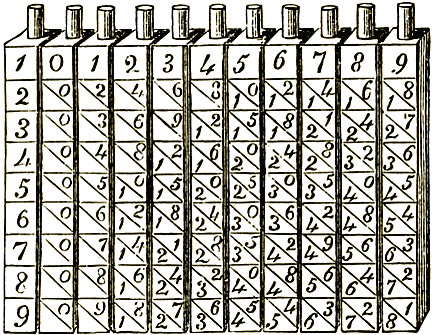
Most people are aware that Pi Day is celebrated on March 14, the calendrical day that most closely corresponds to the number π, which is approximately equal to 3.14159265.
Far fewer people know that today, February 7, is e-Day. That is, the day that corresponds to Euler’s constant, the base of natural or Naperian logarithms, which is commonly written as e.
e = 2.7182818 (approximately). If we use a bi-digital interpretation of the decimal portion of the number, as is done to calculate Pi Day, e-Day would be February 71, which might prove difficult to celebrate, even in a Leap Year.
However, even though it is considered heretical by certain orthodox mathematical sects to do so, if we take the 7 by itself as the significant digit (the uni-digital interpretation), e-Day becomes February 7. Choosing that date gives us a week to recover before the rigors of St. Valentine’s Day.
The rest of the digits might be read in several different ways. If we were to read them as a decimal fraction of the day, then they would represent 0.182818 × 24 hours, or 4.387632 hours, that is, about 4:23 am.
That’s a little earlier than most people want to get up for their e-Day celebrations. So I suggest reading the rest of the digits as 18:28:18, that is, 18 seconds after 6:28 pm. That’s right at dinnertime, which is much better.
Watch the clock! At eighteen seconds past 6:28 tonight, before digging into the Chateaubriand, everyone should raise a champagne glass and toast John Napier of Merchiston for his contributions to mathematics.

Dear Baron, Happy e day to you too.
Serendipity; I went to wiki to see the animation of Euler’s Identity
e^(i * pi) + 1 = 0
and the featured article for the day is J.S. Bach’s BWV 22 – Jesus gathered the twelve to himself. It is a work for the last Sunday before Lent. It was first performed in Leipzig on 7th February 1723.
One could brush off the old mathematics cobwebs and differentiate y=e^x, in honour of this day… An easy way to celebrate!
Small snag. Napier, being British, would write today’s date as 7/2/.
Napier was Scottish, actually. He did his work before the union with England.
In any case, I’m not British; I’m American, just like the people who invented Pi Day. So I write the date American style, and everything works out just fine.
Moreover, if you’re inclined to carry arrant pedantry to this level of picayune absurdity, what protocol did Archimedes of Syracuse observe for his calendrical notations? If any single person could be said to have “discovered” pi, it would be he. How did the ancient Greeks write their dates?
If we can determine the answer to that question, we can assign the historically appropriate date to Pi Day. Then you, and I, and all the world’s mathematicians and nitpickers will be satisfied.
The miracle is that e to some power is a function that equals its own derivative.
Dear Baron,
Now you have spoiled the secret!